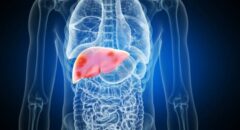
The human body needs fat to survive but statistics show that many people get too much. As a result, you’ll be more prone to develop chronic illnesses that can severely impact your health. One of these illnesses is nonalcoholic fatty liver disease (NAFLD). You can significantly cut your risk of being diagnosed with it if you manage the amount of saturated fat in your diet.
10 Ways To Cut Bad Fat
1. Make Your Meat Lean
One easy way to cut bad fat from your diet is to trim it from the meats you're eating. That means removing the skin from chicken and opting for lean cuts of beef or pork. Some doctors also suggest staying away from beef entirely.
2. Replace Butter
Many recipes call for the use of butter but there are a few excellent substitutes depending on what you’re making. If you’re baking, consider replacing half of the required butter with plain fat-free Greek yogurt, applesauce, pumpkin, mashed prunes, or fruit compotes. High-quality vegetable oils like canola, olive, safflower, or sunflower can also do the trick. When cooking, consider using extra virgin olive oil instead.
3. Eat More Fish
Fish is a healthier protein than most other meats. It’s even better if you opt for the types that have high levels of omega-3 fatty acids. Some of the fish you should choose include tuna, sardines, salmon, and mackerel.
4. Replace Creamy Sauces And Spreads
Most creamy sauces and spreads are chock-full of unhealthy fats. One good substitute is creamed avocado. You can have it on your toast or crackers as well as use it in recipes.
5. Opt For Low-Fat Foods
As long as there’s a low-fat alternative to the foods you usually use, it’s a good idea to check it out. Of course, you should read the nutritional labels as well to make sure that the claims aren’t false.
RELATED: Good Fat Vs. Bad Fat: Can You Tell The Difference?
6. Fry Less
Fried foods are more likely to have a lot of that than non-fried foods. Try grilling, baking, boiling, or broiling for healthier preparation options.
7. Try Chopped Nuts
Walnuts can be great as a topping on your salad, a snack, or a protein substitute in certain meals. You can also use them in combination with granola, dried fruits, and other nuts to make trail mix or granola bars.
8. Eat More Fruits And Vegetables
Doctors recommend including fresh fruits and vegetables in your diet. You can eat them as snacks so you’re avoiding the highly processed foods that you might usually eat.
9. Add More Vegetarian Options
Including vegetarian meals in your diet can cut down on how much bad fat you eat. That’s because plant-based proteins tend to have healthy fats that support your overall wellness.
10. Avoid Processed Foods
Processed foods typically contain fat, added salt, or added sugar to extend their shelf lives. Unfortunately, these added ingredients aren’t good for your health. Some processed foods include deli meats, microwave meals, tinned vegetables, savory snacks, and breakfast cereals. It’s better for your health to use fresh foods and make your own meals.
How Fat Intake Influences NAFLD
NAFLD is typically characterized by the abnormal accumulation of fat in the liver. According to several studies, NAFLD is linked to your diet - particularly a Western one. Western diets are usually high in processed foods, red meats, refined sugars, sweet drinks, and high-sugar baked goods. On the other hand, people who partake in a Mediterranean or Dietary Approach to Stop Hypertension (DASH) diet are less likely to develop NAFLD. Research has shown that the lower intake of saturated fats in the approved diets is what made the difference.
When To See A Doctor
Though NAFLD can be caused by an unhealthy diet, there are other factors that can increase your risk. People who have bowel disease, high blood pressure, and type 2 diabetes may get NAFLD more readily than those who don’t. If you’re constantly tired, feeling nauseated, having trouble concentrating, losing your appetite regularly, or feeling pain in your upper abdomen, you may be experiencing some of the signs of NAFLD. The best thing to do in that case is to talk to your doctor.
Being diagnosed with NAFLD can have a significant impact on your life. However, you can easily reduce your risk by watching what you eat. Even if you start slowly, it can make a difference.








